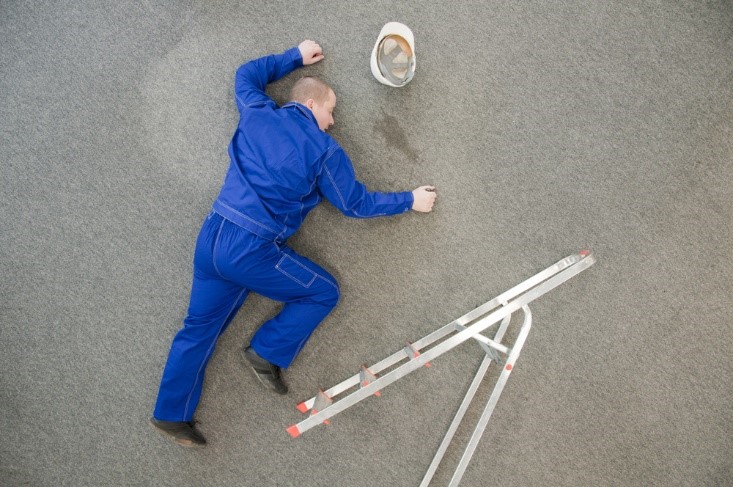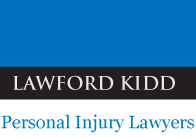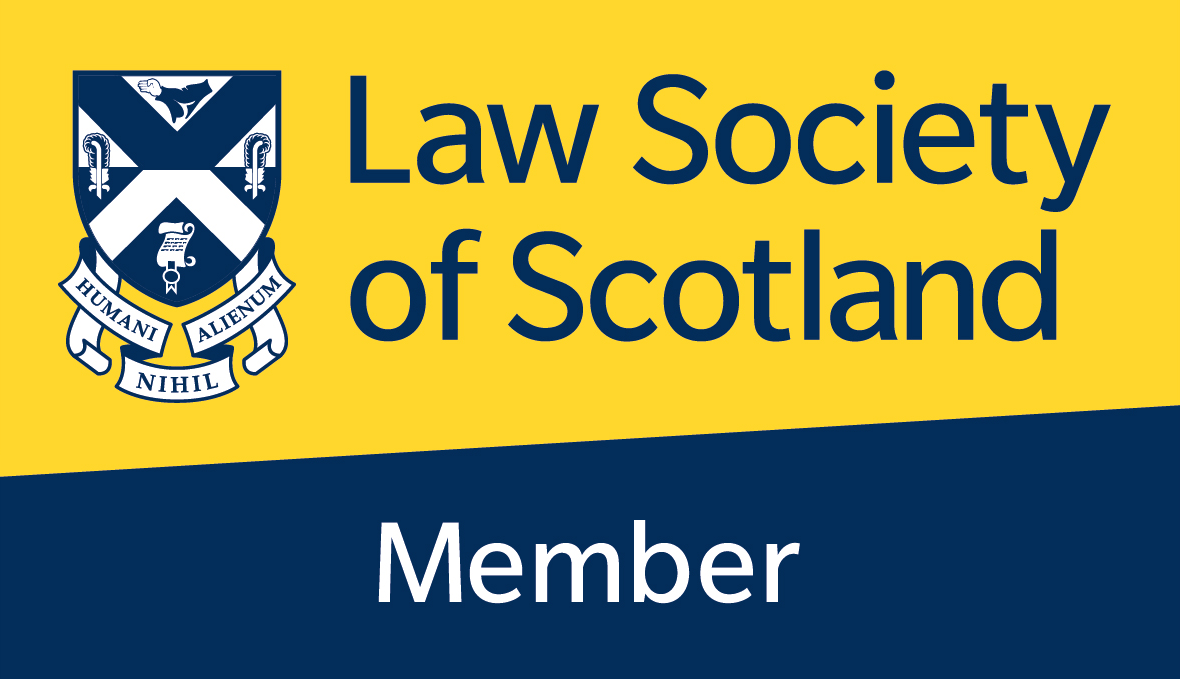Personal Injury Claims Lawyers Edinburgh, Scotland
Have you suffered a personal injury in the last three years that wasn't your fault? Lawford Kidd can help you claim. Our personal injury lawyers, based in Edinburgh, have helped our clients throughout Lothian & across Scotland recoup significant amounts of money in compensation for every type of injury imaginable. We are a firm of solicitors in Edinburgh specialising in injury claims and we aim to deliver an outstanding service to every one of our clients.
Types of Personal Injury Claims & Compensation in Scotland
Whatever the injury, we have the expertise and experience to help. Read our easy 5-step guide to claiming in Scotland here and click the relevant page below to find out about your type of injury and how our personal injury lawyers would be able to help you:-
- Head or Brain Injury
- Whiplash or Neck Injury
- Shoulder Injuries
- Leg Injuries
- Back Injuries
- Arm Injuries
- Hip Injuries
- Foot Injuries
- Hand Injuries
- Asbestosis
- Vibration White Finger (VWF)
- Occupational Asthma
- Silicosis
- Loss of Limb
- Hand Arm Vibration Syndrome (HAVS)
- Occupational Lung Disease
- Needlestick Injury
- Dermatitis
- Impairment of Senses
- Uninsured Drivers and the Motor Insurers Bureau (MIB)
- Slip, Trip or Fall
- Sports Injuries
You can also read our comprehensive top 7 tips for how to claim for an injury in Scotland below:-
 Top 7 Tips for Claiming Injury in Scotland
Top 7 Tips for Claiming Injury in Scotland
Accidents and injuries are an unfortunate part of life. However, where someone else’s careless behaviour causes you pain and loss, there is no need to suffer in silence. Scots law provides a means of legal redress for such situations by allowing you to bring a personal injury claim.
However, when faced with complex legal language and procedural requirements, it is easy to be deterred from seeking the compensation that you deserve. Some basic tips can ensure that you make informed decisions about whether or not to bring a personal injury claim.
Top tips for bringing a Personal Injury claim under Scots Law
1. Know the time limits
An individual who wishes to pursue a personal injury claim does not have an unlimited time to do so. Although placing such limits on the time in which a person can initiate proceedings may seem unfair from the perspective of the claimant, this consideration has to be weighed up against others. The claimant’s loss has to be balanced against the general importance of having an efficient justice system.
As such, under Scots law, personal injury claims should be initiated within three years of the date of the accident or injury in question, or within three years of the date when the claimant became aware of the injury. This limitation period is set out in the Prescription and Limitation (Scotland) Act 1973. Where the claimant is a child, the three-year period will only begin when he or she reaches the age of 18.
However, while that remains the general rule, the courts do retain a discretion to allow a personal injury claim to be brought outside that period. Judges, however, will only allow this where there are ‘equitable’ (i.e. fair and just) reasons to do so. This cannot be guaranteed. As such, the first basic tip is to bring their case within the three-year limitation period wherever possible.
2. Initiate proceedings in the correct court
It is important to bring your personal injury claim in the correct court. Failing to do so may result in delays and expenses for all parties involved if the court has to transfer the case to another forum. Indeed, the party that initiated the claim in the wrong court may have to foot the legal bill related to the mistake.
Where a personal injury claim is valued at £5,000 or less, an individual must bring his or her case in the Sheriff Court. If the claim is worth more than this, there is a degree of choice as to the court in which to commence proceedings.
In such a situation, it is important to exercise judgment or seek legal advice when deciding where to bring a claim. It is still possible to bring a claim in the Sheriff Court. However, it may also be possible to bring the action in the Court of Session if the dispute involves a complex legal issue, a matter of public importance or if the financial value of the case justifies doing so. The Court of Session has judges with significant experience in the field of personal injury. It should be noted, however, that the Scottish Parliament is currently considering proposals to change the minimum financial threshold required to bring a personal injury claim in the Court of Session as part of the Court (Reform) Scotland Bill.
3. Follow the rules – Personal Injury procedure
In all legal proceedings, it is important to play by the court’s rules. This means following the relevant procedures. There are often sanctions for failing to do so, which can include saddling the legal costs related to the mistake.
The procedural rules for personal injury claims are distinct from other civil claims. The Act of Sederunt (Ordinary Cause Rules Amendment) (Personal Injury Claims) 2009 introduced a strict timetable for personal injury claims valued at over £5,000 that are commenced in the Sheriff Court. If a claim is brought in the Court of Session, it will be governed by the Chapter 43 procedure.
4. Think carefully about who you choose to sue
People litigate for a variety of reasons. For example, a person may feel personally wronged by the actions of another and therefore seek official recognition of that harm. However, in the vast majority of cases, people are concerned with the amount of money they are able to secure by bringing a claim.
As such, it is important to consider who the best person to bring legal proceedings against is. Often, there will only be one candidate. However, where there is a choice, it is wise to sue the party with the ‘deepest pockets’.
This issue often proves to be particularly important where someone has been injured by the actions of an employee. The rules of vicarious liability may allow that person to bring a claim against the employer, rather than the employee. This can allow for greater financial recovery.
5. Personal injury covers more than physical harm
The word ‘injury’ is often associated with physical pain or harm. However, from a legal perspective, where someone else’s careless behaviour causes your accident, you may also be able to claim for the mental distress associated with your injury. Indeed, it is possible to claim for pure psychiatric harm (in the absence of further injury) under certain circumstances, such as where an individual has suffered a psychiatric injury or disorder from perceiving the harm of others. Claims for pure psychiatric harm will only be available, however, where the impact on the individual is more than just the normal emotional response to an incident. Fear, distress or grief alone will not suffice.
Where someone has died because of the negligence of another person, there are specific statutory provisions that may be relied on by the immediate family members of the deceased. Section 1(4) of the Damages (Scotland) Act 1976 may entitle family members to compensation in such a situation.
6. Settling outside of court does not mean losing
In a television courtroom drama, one or other party always emerges from the courtroom victorious. In reality, however, many civil claims settle outside of court and are never actually heard. A settlement should not, however, be equated with a loss. Lawyers often advice clients to settle, particularly where it is far from certain that they will get the result that they want.
There can be significant advantages to settling. As well as the possibility of recovering significant sums of money, it can reduce the legal costs associated with the claim. Furthermore, where an individual is bringing a claim against someone they know – an employer or neighbour, for example – it can help avoid the tension and animosity associated with the adversarial courtroom.
In relation to personal injury claims, there is a voluntary Pre-Action Protocol procedure. This is designed for cases of around £10,000 or under, and can be a useful tool if you wish to settle out of court.
7. Seek legal advice to assess the likelihood of success
Perhaps most important of all is to realistically assess the likelihood of your claim being successful. People may have good reason to feel hurt or wronged by the actions of another, but the law does not always support their position.
Legal proceedings can be expensive, and the general rule is that the ‘loser’ pays the costs of litigation. As such, it is important to seek legal advice before bringing a personal injury claim. Even advice that you may not want to hear – such as the fact that your claim is unlikely to succeed – is valuable.
Legal advice on your Personal Injury claim
 Unlike claims companies who take a cut, Lawford Kidd pass on 100% compensation to their clients. Their expert legal team provide a fantastic service and are exceptionally responsive to the needs of their clients, working to their best abilities to ensure their clients get the compensation they deserve. If you think you are entitled to compensation, Click here to start making your personal injury claim or call us our lawyers today on 0131 516 7003.
Unlike claims companies who take a cut, Lawford Kidd pass on 100% compensation to their clients. Their expert legal team provide a fantastic service and are exceptionally responsive to the needs of their clients, working to their best abilities to ensure their clients get the compensation they deserve. If you think you are entitled to compensation, Click here to start making your personal injury claim or call us our lawyers today on 0131 516 7003.









